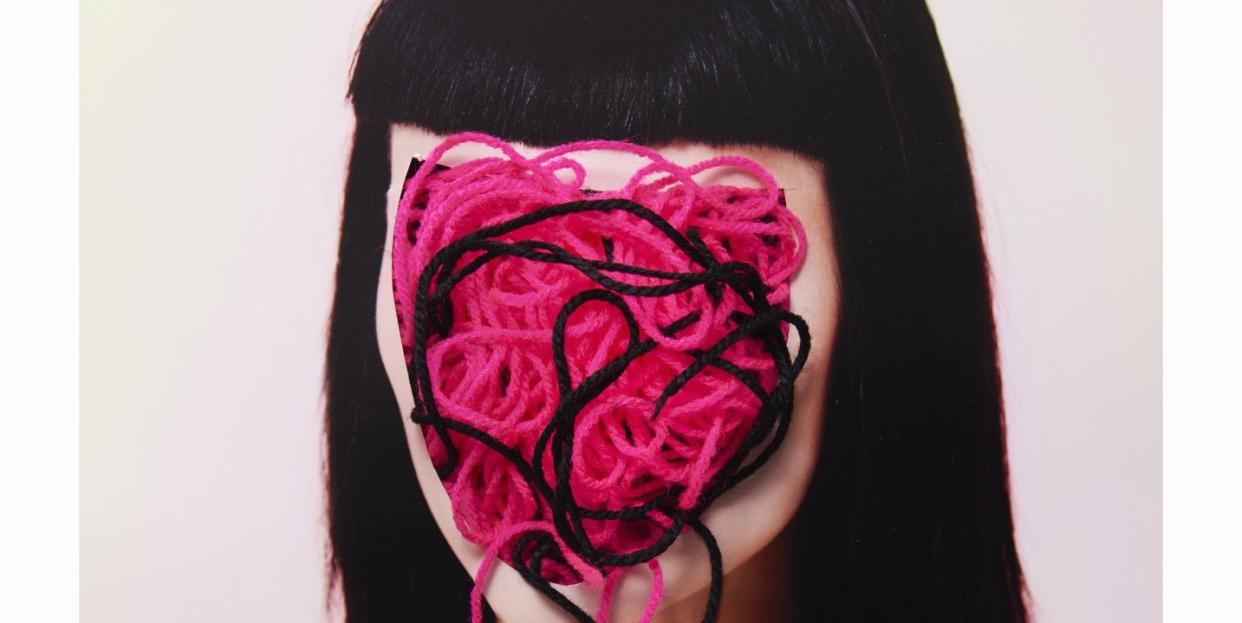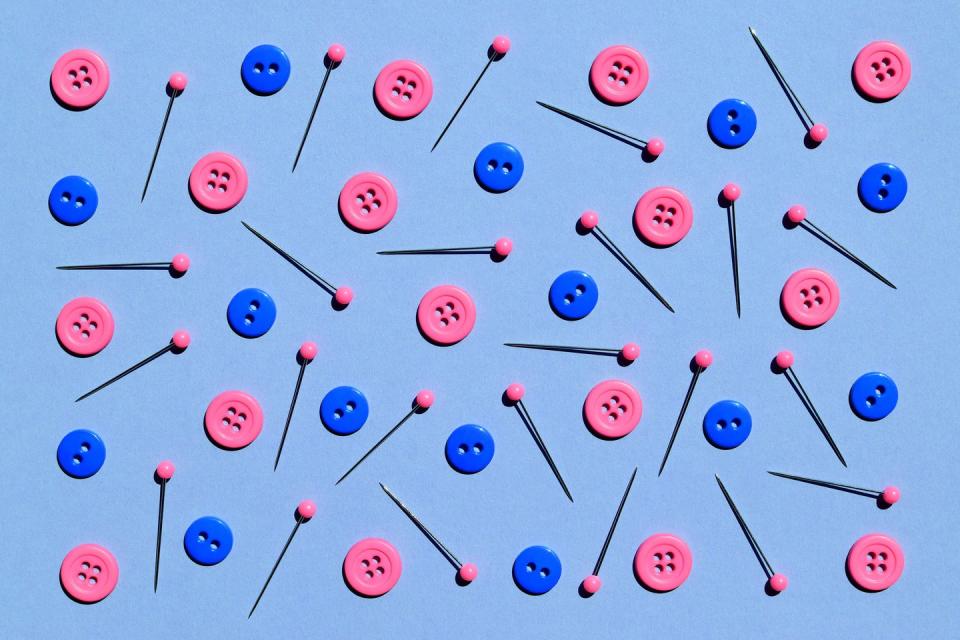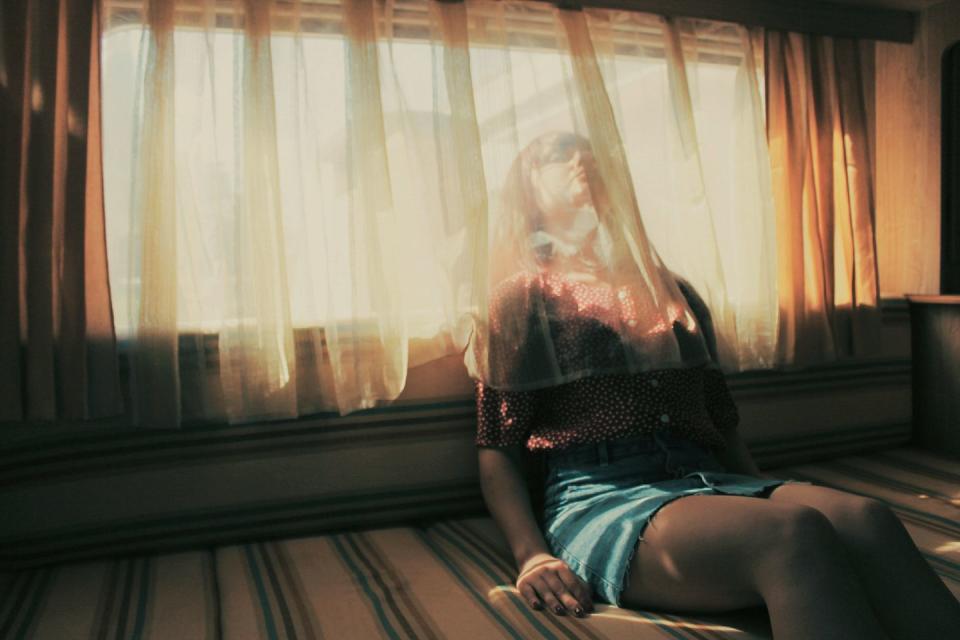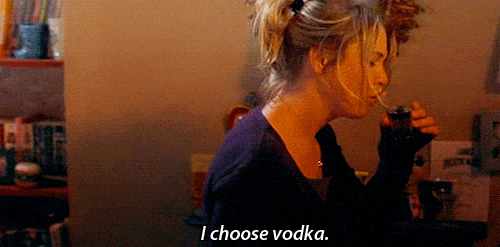The real meaning behind the word "spinster" and the secret ways it's still used today

"Spinster" is a word we've grown up hearing plenty of in popular culture, from the books of Jane Austen to basically any film about a single woman over 30 (never forget, 'Diary of Bridget Jones, Spinster and Lunatic'). Historically a negative and derogatory term, modern use of the word spinster isn't just confined to fiction. It still exists all over the world in official documentation, and is just another symptom of how misogyny is super ingrained in our language.
So where did the word "spinster" actually come from? Why do people find it derogatory? And how is it is still used today?
What is the meaning of the word spinster?
"Spinster" is defined by the Cambridge English Dictionary as, "a woman who is not married, especially a woman who is no longer young and seems unlikely ever to marry." Note the keyword here: woman. Spinster, unsurprisingly, is a word that can't be used to describe a man. And the male alternative to spinster? Bachelor.
While a bachelor is simply defined as, "a man who has never married," it carries with it a whole host of connotations of being a player, a stag, footloose and fancy-free (a genuine thesaurus-listed synonym). At the same time, spinsters are thought of as sad, lonely women, left on the shelf. Look up the definition of "single" online and you'll find bachelor and spinster listed side-by-side, highlighting a very obvious double standard between what it means to be single as a man and what it means to be single as a woman. Not cool, Google.

Spinster origins and history
Spinster, as the name suggests, historically refers to women who literally spun thread and yarn for a living, dating back as far as the mid-1300s.
While the word was originally simply used to describe a woman's job, it quickly also became associated with women who were single and poor. Historians suggest that because unmarried women were poorer than married women in the middle ages (obvs) they couldn't access expensive materials and ended up doing lower-status, lower-income jobs like spinning wool.
Spinster then became an official term in legal documents, as many people in the middle ages used their occupation as a surname (which is why people still have names like Smith, Potter, Thatcher and Baker). However, because being a spinster by occupation was also associated with being an unmarried woman, by the 17th century, "spinster" was used on legal documents simply to mean an unmarried woman.
Since then, on top of being a legal term, "spinster" has also become a derogatory word, used to shame women for not being married by a certain age, and to make them afraid of being left alone or 'on the shelf'.

How the word spinster is used today
The 17th century might, understandably, seem like a long, long time ago, but it wasn't until 2005 that the terms "spinster" and "bachelor" stopped being used in England and Wales to describe unmarried people on legal documents. 2005!
As part of the Civil Partnership Act 2005, "bachelor" and "spinster" were both replaced with the "catch-all" term "single" on official documentation. However, this was only brought about to avoid "complications" when it came to same-sex civil partnerships. So complicated, right? Anyway, better late than never.
Meanwhile, in some countries around the world "spinster" and "bachelor" are still the legal terms for women and men who have never been married. And when it comes to dictionary definitions, "spinster" is still officially listed as a synonym for "single".
Spinsters in popular culture

Spinster characters have been around in popular culture for centuries and, let's be real, they're not exactly presented as aspirational. While Jane Austen's protagonists were busy spending their whole time deciding who to marry, unmarried older women like Miss Bates in Emma were confined to a life of spinsterhood, ready to die poor and alone. Meanwhile, Charles Dickens' Miss Havisham wallows in her wedding dress in a ruined mansion, driven mad after being jilted at the altar. Obviously.
While representations like Jane Austen's were, sadly, true for their time, the idea of unmarried single women as sad, lonely spinsters is still regularly perpetuated in modern films and TV shows.
Think Bridget Jones accepting her "permanent state of spinsterhood" and preparing to be eaten by alsatians, while the whole dinner table shames her for being unmarried in her twenties (even though she had a whole thriving career). Or think of Tina Fey's Liz Lemon in 30 Rock who 'tries' being a spinster by wearing baggy jumpers and a bum bag and adopting a cat when none of her relationships work out.
Do you remember when Bridget Jones was considered a loser for having a full-time job in PR and having our own flat in zone one London and being single at 32 😂
— fatuma (@fatumakhaireh) February 9, 2020
Seriously? Bridget was living the dream.
Though films and TV shows like Bridget Jones and 30 Rock are mostly intended to be satirical, they're still mocking the mainstream views of the time (30 Rock season five literally came out in 2010). But why would Bridget call herself anything different when back in 2001 she was still technically a spinster by law?
liz lemon deciding to become a spinster and carrying around wine in her thermos and her cat named emily dickinson is #goals tbh
— Jane 🌹🔥 (@heyitsjanes) April 5, 2017
"I took the money I was saving for my honeymoon and I bought a cemetery plot"-Liz Lemon, fellow spinster
— why we're single (@futurespinsters) February 18, 2011
However, it's not all doom and gloom. Fair enough, the producers of The Bachelor *have* cut us some slack and given us The Bachelorette. And there are plenty of incredible single women to aspire to, whether it's Lizzo marrying herself or Emma Watson's newly-coined "self-partnered" status.
Meanwhile, some women have tried to reclaim the word "spinster" as a positive one, writing books like Kate Bolick's Spinster: Making a Life of One's Own, or rebranding the term as Spinster Chic. Let's be real, there's a lot of fun that comes with being single, like having the freedom to do literally what you want whenever. And you also get to laugh at single memes, so really it's a win-win.
Like this article? Sign up to our newsletter to get more articles like this delivered straight to your inbox.
You Might Also Like

